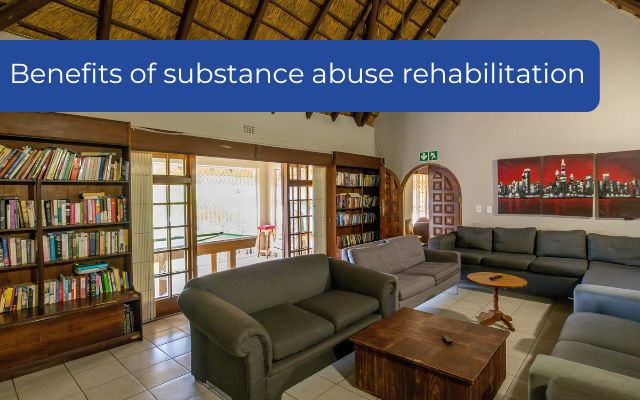The Only Guide to Narconon Africa
The Only Guide to Narconon Africa
Blog Article
The Of Narconon Africa
Table of ContentsSome Ideas on Narconon Africa You Need To Know7 Easy Facts About Narconon Africa ShownAll About Narconon AfricaEverything about Narconon AfricaThe Best Guide To Narconon AfricaExamine This Report about Narconon AfricaThe 10-Minute Rule for Narconon Africa
In a collection of papers with Manudeep Bhuller and Katrine V. Lken, we get over these data difficulties and the nonrandomness of imprisonment, using new understandings right into how imprisonment influences relapse, work, children, and criminal networks - Rehabilitation technology. Figure 1 Our work research studies the impacts of imprisonment in Norway, a setting with two essential advantagesWe can further link this info to other family members, including youngsters and brother or sisters. We have info on co-offending that enables us to map out criminal networks for observed criminal activities. Second, we can utilize the arbitrary assignment of criminal cases to judges that vary in their tendencies to send offenders to jail.
But some judges send offenders to jail at a high rate, while others are extra tolerant. We measure a judge's stringency as the ordinary imprisonment price for all various other cases a judge manages, after managing for court and year set results, which is the level of random job. This quasi-random assignment of court stringency can be utilized as an instrument for incarceration, as it highly predicts the court's decision in the present situation, yet is uncorrelated with other instance features both deliberately and empirically.
Narconon Africa - Questions
Characteristics of prisoners, consisting of demographics and criminal activity classifications, are extensively comparable in Norway and other nations, including the USA, with the exceptions that the United States murder rate is a lot greater, and race plays a larger duty there as well. What sticks out as various, especially compared to the United States, is the prison system.
Figure 2In Norway, the ordinary time invested behind bars is a little over 6 months, which resembles most other Western European countries. This contrasts with typical United States jail time of virtually three years, which remains in big part the reason the United States is an outlier in its imprisonment rate compared to the remainder of the world [Figure 1]
Our Narconon Africa Statements
This provides much even more separation in between small and solidified crooks than exists in the United States. There is no overcrowding in Norwegian jails and better individual safety and security, with each detainee being designated to their own cell and a greater inmate-to-staff ratio than in the United States (https://disqus.com/by/elmahernandez/about/). Prisons in Norway likewise supply well-funded education and learning, medicine therapy, psychological health, and job training programs
Our study on the effects of incarceration on the culprit, making use of the arbitrary job of judges as an instrument, yields three essential findings. Imprisonment dissuades even more criminal behavior. We discover that incarceration lowers the probability that an individual will certainly reoffend within 5 years by 27 percent factors and lowers the equivalent variety of criminal costs per person by 10 charges.
More About Narconon Africa
We find sizable declines in reoffending chances and cumulative billed criminal activities also after accuseds are released from see this page prison. Our second result is that predisposition as a result of selection on unobservable specific characteristics, if disregarded, brings about the erroneous conclusion that time spent behind bars is criminogenic. If we simply compare criminal accuseds imprisoned versus those not sentenced, we find positive organizations in between imprisonment and subsequent criminal activity.
This stands in contrast to our evaluation based upon the arbitrary task of judges, which locates an opposite-signed result. Third, the reduction in criminal offense is driven by people that were not working before incarceration. Amongst these individuals, jail time raises engagement in programs routed at boosting employability and decreasing regression, and this ultimately increases work and earnings while discouraging criminal habits.

Jail time creates a 34 percentage point boost in participation in task training programs for the formerly nonemployed, and within 5 years their work rate increases by 40 portion points. At the very same time, the probability of reoffending within 5 years is cut by 46 percentage points, and there is a decrease of 22 in the ordinary variety of criminal charges.
The Of Narconon Africa

A plausible explanation for the distinction is that Norway's jail system varies considerably, both in regards to prison-term length and prison problems, from the US jail system. While understanding the results of incarceration on the transgressor is a vital primary step, catching spillover effects is additionally vital for evaluating criminal justice policy and designing efficient prison systems.
Narconon Africa - Questions

Common the very least squares approximates reveal that kids of incarcerated daddies are 1 percent point more probable to be billed with a criminal offense, loved one to a mean of 13 percent, and reveal no result on school grades. Using our judge stringency instrument, we discover no statistical proof that a daddy's incarceration impacts a kid's very own criminal activity or school grades, yet we are unable to dismiss modest-sized effects.
The Ultimate Guide To Narconon Africa
We define criminal groups based on network web links to previous criminal instances. When a criminal network member is incarcerated, their peers' possibility of being billed with a future criminal offense reduces by 51 percentage factors over the following four years - https://telegra.ph/Narconon-Africa--Bringing-Effective-Solutions-and-Hope-to-an-Entire-Continent-with-the-Opening-of-a-New-Center-06-05.
Report this page